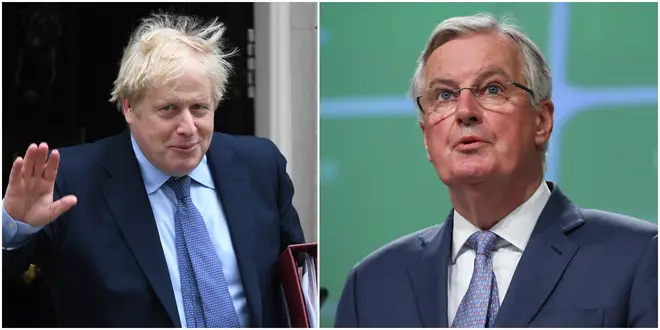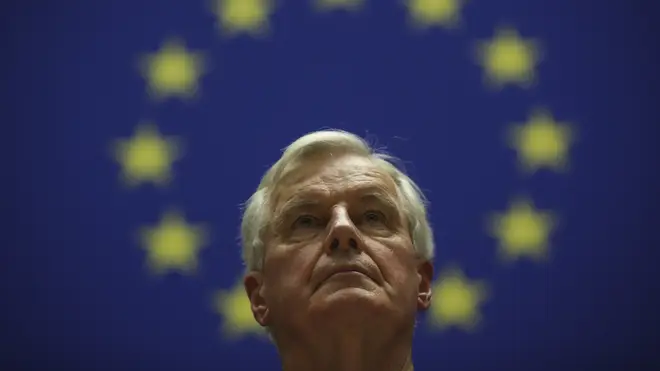
Oli Dugmore 4am - 7am
26 February 2020, 20:08

Michel Barnier has said the UK must agree on some "ground rules" if it wants "super-preferential" access to EU markets.
The EU's chief negotiator said he accepted UK Prime Minister Boris Johnson's assurances that Britain would "never engage in a race to the bottom" or "seek to undermine European standards."
"I do not believe that the UK will become some sort of ‘Singapore on Thames'. But that means it should not be a problem for the UK to agree on a number of ground rules," he said.
Mr Barnier's comments - while speaking at an ESCP business school seminar in Brussels - come as the UK government is preparing its negotiating mandate for upcoming talks on a post-Brexit trade deal.

He added that without a set of common "ground rules" in any trade deal, the EU would be unable to prevent unfair competition and efforts to tackle climate change would be undermined.
"How credible would we be going into the next COP 26 meeting in Glasgow if our future agreement allows businesses to cut corners on environmental and social rights for the sake of gaining market shares?" Mr Barnier asked.
"We are ready to offer to the UK super-preferential access to our markets - a level of access that would be unprecedented for a third country.
"Is this something we can do without firm guarantees that the UK will respect the level playing field and avoid unfair competitive advantages? The answer, I'm afraid, is simple. We cannot.
"We want competition in the future but it must be fair - fair and free."
The EU's chief negotiator set out the bloc's negotiating mandate on Tuesday and added that whatever the outcome of the trade talks, there would be checks on goods entering Europe from Britain when the current transition period ends at the beginning of 2021.
"Of course we love 'Made in Britain' but we must guarantee that the goods we import from the UK - tariff and quota-free - really are British," he said.
"We cannot take the risk that the UK becomes a kind of assembly hub for goods from all over the world, allowing them to enter the single market as British goods."
Adrian O'Neill, Ireland's ambassador to the UK, said it should be possible to reach agreement on a trade deal by Mr Johnson's deadline of the end of the year, even if does not cover all aspects of future EU-UK relations.
"I think it will be challenging to negotiate a deal in that timeframe but I think it will be possible. I think Mr Barnier also thinks it will be possible," he said.
"It may not cover all of the desirable areas that we would like it to cover, it may not be as comprehensive as we would have wished, but I think there is sufficient time, certainly, to negotiate a fair trade agreement."